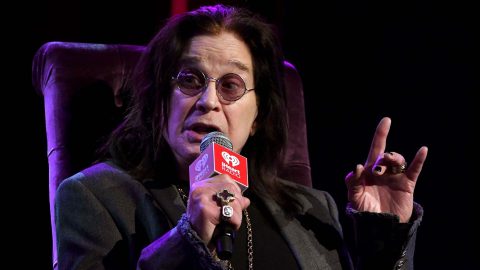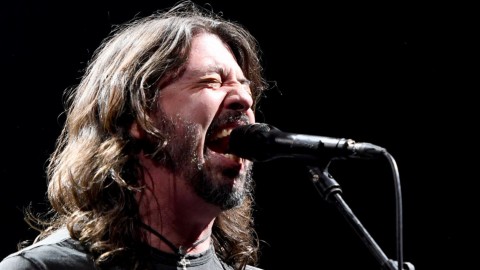NME Music News, Reviews, Videos, Galleries, Tickets and Blogs | NME.COM

Despite the government promising a £1.57 billion cash injection for venues and arts spaces alongside the announcement that some socially distanced live shows can take place indoors from the first of August, last week was full of terrible news for the northern music scene, which has a history of being painfully underfunded – a 2017 report found that the arts in the north would need a £700m cash injection to bring it to parity with London in the next funding round.
Manchester’s Gorilla and The Deaf Institute were reported to be closing, along with Hull’s The Welly and The Polar Bear, following Covid-19’s decimation of the live music scene. These spaces are part of an important national network of venues. The Deaf Institute alone has helped to break the likes of The 1975, IDLES, and Two Door Cinema Club and given a platform to international bands such as Tame Impala, Warpaint, St. Vincent and Haim. Without these venues, the next generation of superstar talent can’t get off the ground.
There was an outpouring of support following the news. Twitter was full of stories about how much those spaces meant to people, with the Music Venues Trust (the team behind Save Our Venues, an ongoing crowd-funded campaign to help the 400+ grassroots music venues survive this unprecedented threat to their existence) stating: “We understand that the future of all these spaces as grassroots music venues may be salvageable, and we strongly urge Hull City Council and Manchester City Council to bring together all stakeholders in the city to see what can be done to secure the premises, locate alternative operators and prevent these vital spaces being permanently lost.”
Sacha Lord, Night Time Economy Adviser for Greater Manchester, seems confident that Gorilla and The Deaf Institute will eventually reopen: “There is hope on the horizon, he told NME). Yet this is far from guaranteed and there’s a worrying feeling across the board that these spaces won’t be the only casualties we see this year – and that venues in the north of England will be hit the hardest.
NME spoke to local Hull and Manchester heroes LIFE, Hot Milk, bdrmm, Phoebe Green and Elbow‘s Guy Garvey, as well as the Music Venues Trust, about why that can’t be allowed to happen.
Hannah Mee of Manchester power-pop band Hot Milk: “Why is it always the northern venues closing?”

“The [prospective closure] of Gorilla and The Deaf Institute feels like a kick in the already swollen balls. Obviously coronavirus was never going to be a good thing for the music industry; I just didn’t expect two absolute Manchester bastions to be dissolved because of it. Those venues were our playgrounds as well as places where we went to watch bands or put them on.
“All the big Manchester legends played small venues like Gorilla coming up and every so often, you’d get an international band coming through. If you’re a local band and you see a band from across the world, playing in the same venue that you do, it makes you feel like you’re part of something. It makes you realise that touring doesn’t just have to be arenas. I don’t think the Government realises there are bands that make a living from playing 300 capacity venues. Why would they? They have no idea of the breadth and width of the whole thing and how deep it can run. These smaller venues inspire kids and show them what’s possible.
“Why is it always the northern venues closing, when the northern towns are the ones that need these grassroots venues most? We don’t have much else going on apart from music. These venues closing paints a bigger picture of how cities like Manchester are losing part of its soul. Music is in the blood of Manchester; it’s such an important factor of the city we live in but it feels like it’s being taken away. We need to look at the past to invest in the future but instead. It feels like cultural degradation. It’s a sad time and big business is coming in and taking away the things that matter. Without these spaces, there’s going to be a void. Where’s that fucking arts fund?
“There might be hope Gorilla and Deaf Institute reopen but, to be honest, the fact it’s got to this point is sad and a bit of a fuck-up by the arts sector and the people that are supposed to be defending it.”
Guy Garvey of Manchester heroes Elbow: “Stop venues from being turned into flats”

“We’ve got to protect all of our small venues. Venues like The Deaf and Gorilla have been essential for bands and I’ve seen amazing shows at both of those venues, so their [potential] closure is a real heartbreaker. It is nothing short of a disaster. The Deaf Institute in particular has a small room upstairs with bunkbeds, so they’ve always been really forward thinking about making a venue that is viable for bands from overseas to not just play, but tour.
“There needs to be a law that stops venues from being turned into anything else until this pandemic is over; otherwise we’re going to lose some serious building blocks of not just music, but culture. There just needs to be a sensible law passed to stop venues from being turned into flats. Just say that nobody can buy anything for five years. If it’s a venue or a theatre, there needs to be a law that allows business people to keep their nerve and independent venue owners to keep their nerve.”
Mez Sanders-Green of Hull up-and-comers LIFE: “The fabric of the industry is crumbling”

“I was devastated when I saw that The Polar Bear and The Welly were closing, as were so many people from Hull ‘cause they were such institutions of the local community. It’s where a lot of bands start out. Those venues are owned by bigger companies, just like Gorilla and The Deaf Institute and it’s sad to say but I think a lot of northern places just seem like collateral that they can get rid of, to try and save some money. The majority that are shutting down are northern; they’re the first to go and it really shows the divide.
“Hull is very isolated and without those venues; our music scene looks really sparse. It’s happening all around and that’s the scariest thing. These grassroots venues are the feeders of the bigger picture of culture. There needs to be consideration because if you take those away, what else is left?
“Grassroots venues make up the DNA of our band as well. Even before I was in LIFE, they were always the places that inspire. They’re the places you go and see other bands doing what you want to do, then you go away and emulate that. To have that hole in the community is a devastating blow, not just for the venue owners but for touring artists as well. It’s not just about the local community either – the Government needs to recognise that these local venues are part and parcel of the international scene.
“It’s been announced that socially distanced gigs can take place from August but they’re not the sort of gigs that bands from our scene can be involved in [due to the cost]. The most devastating thing is that the places that are considered a bit ugly, gnarly or dingy are where everything starts and for them to be forgotten or overlooked is just devastating. It feels like the fabric of the whole industry is crumbling, which is so sad to see. “
Manchester singer-songwriter Phoebe Green: “Up north, we’re always trying to build our own culture”

“I live close to Gorilla, so it’s always been mine and my family’s favourite place to go for a meal or to grab a coffee. I’ve been to countless gigs there and I love it. The Deaf Institute is my favourite ever venue to play, I’m obsessed with playing there. Their loss takes away a massive part of our culture. With the northern music scene, we’re always trying to build our own culture because places like London obviously have a culture of their own. Right now, northern artists are making a name for themselves and showing that you don’t have to be from a massive city in order to be successful. Up north, it’s important for us to have established venues and festivals like Neighborhood or Dot-to-Dot, which use Gorilla and The Deaf Institute.
“It makes it a lot harder to stay afloat as a viable music scene when key parts of it are being taken away. Venues like those two are massively vital. Without them, artists don’t have a starting point and it’s going to be really difficult for the city.
“Gorilla and The Deaf Institute are also some of the only venues that allow gigs that aren’t 18+. That’s such an important thing because we need young people to be able to access live music and without these venues, that’s going to be so much more difficult. They’re really loved venues that are so local and welcoming. They’re iconic and it’s gutting they’re closing. It’s so sad.”
Ryan Smith of emerging Hull shoegazers bdrmm: “You don’t get many opportunities in Hull”

“To lose two of the most important and accessible venues in Hull is heartbreaking. When you’re from Hull, you don’t get many opportunities. The Polar Bear had a night on a Tuesday called The Sesh. It’s been running for over 15 years and it was the only place to give local bands a platform to perform. It’s important for bands to build up their self-esteem and craft playing onstage.
“When you start to lose places like that when you’re from somewhere that isn’t in the [centre of culture], like Hull, it’s a real shame. There’s more of an economic struggle in the north, especially in the music industry. The fact there’s not been enough funding, or enough thought gone into the fact this industry needs help – it’s pretty fucked. What’s the point in reopening everything if these venues can’t afford to stay open? It’s stupid.
“Without venues like The Polar Bear or The Welly, being a band from Hull is going to be very difficult. It’s going to get to the point where new bands like us are not going to have anywhere to play anymore which is terrifying. We really want to make something of this band, career wise, and we’re not going to be able to if there’s nowhere to play. I can’t get my head around it. it’s so bizarre and so heartbreaking. I hope the government pull their finger out and realise how important these venues are. “
Mark Davyd, CEO of Music Venue Trust: “Keep on supporting the Save Our Venues campaign”

“These venues are four absolute cornerstones of the music scenes in both Hull and Manchester. Both cities have extraordinary reputations for music – Manchester is one of the world’s music cities. If Manchester – home of so much of the music the UK has created in the last 50 years – cannot protect two of its most iconic venues, the question has to be asked: which city can?
“The package of funding for venues and arts spaces has been agreed by the Government but has not yet been released. Music Venues Trust did warn the Government and the industry that July was a crunch time in which venues may close before funding support arrived. We need urgent government support to be released as quickly as possible.
“While we are waiting for that to happen, we really need audiences and artists who love these venues to keep on supporting the Save Our Venues campaign. Without an urgent emergency package of funding to prevent immediate closures, we fear these will be the first of many.”
The post “It’s cultural degradation”: what corona-closures mean for live music in the north appeared first on NME Music News, Reviews, Videos, Galleries, Tickets and Blogs | NME.COM.





